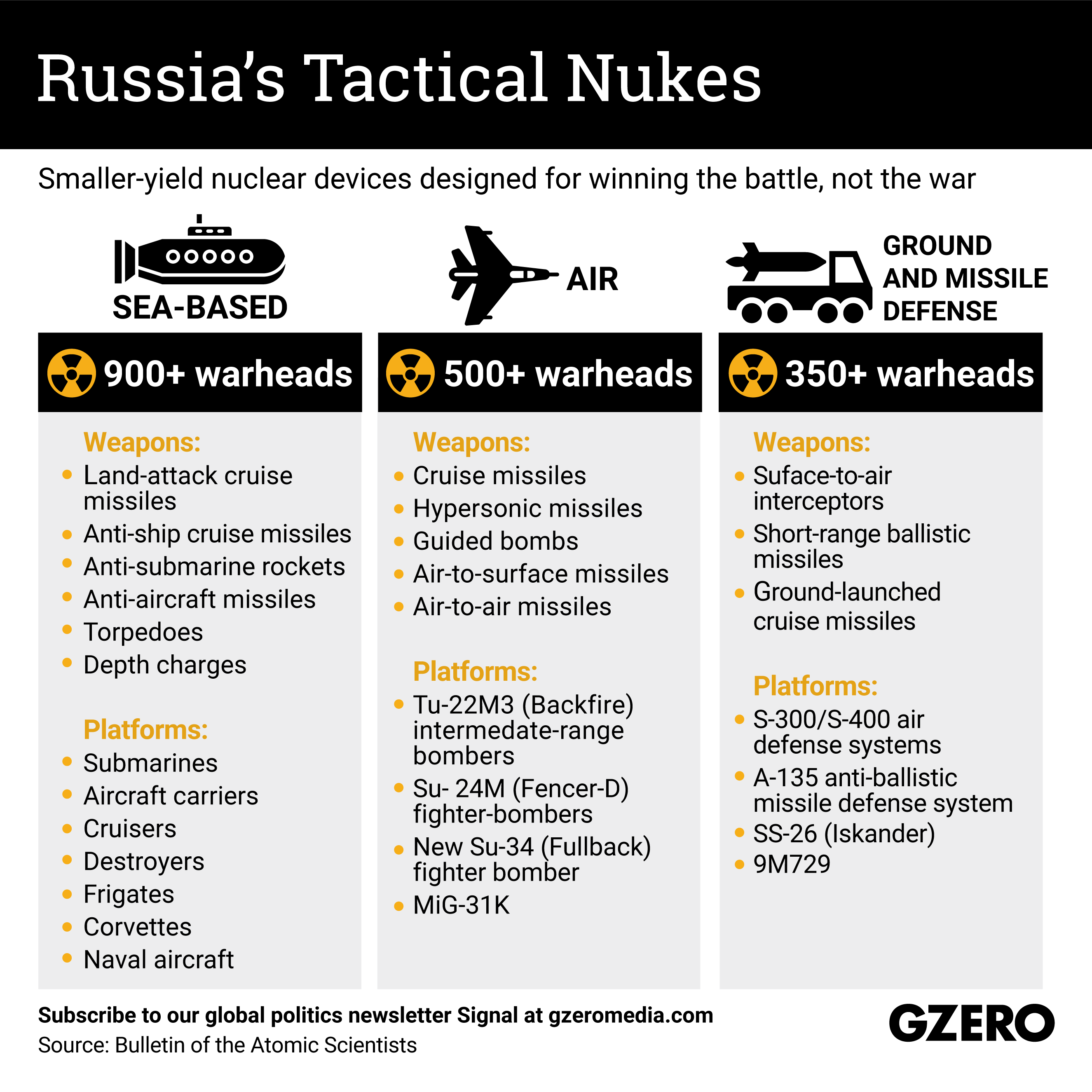September 25, 2022
Vladimir Putin is upping the rhetoric on using nuclear weapons in Ukraine. But analysts are predicting that if push comes to shove — and that’s a tall order — he’ll likely opt for tactical nukes, smaller atomic weapons that won’t take out entire cities. Tactical nukes, which have been around since the Cold War, have smaller yields, meaning they’re designed to win the battle, not the war. They were developed as politically more acceptable devices, geared to target soldiers and not civilians. However, many of the tactical nukes in Russia’s arsenal — and America’s too — have an an explosive yield many times higher than the bombs dropped on Hiroshima and Nagasaki. Mobile and easy to launch from conventional platforms, this “small enough to use” branding can make these atomic weapons even more dangerous than the larger strategic ones. We feature which of these weapons and launchpads the Russians might use.
This comes to you from the Signal newsletter team of GZERO Media. Sign up today.
More For You
Hellenic coast guard performs SAR operation, following migrant's boat collision with coast guard off the Aegean island of Chios, near Mersinidi, Greece, February 4, 2026.
REUTERS/Konstantinos Anagnostou
15: The number of migrants who died after their boat accidentally collided with a Greek Coast Guard vessel in the Aegean Sea on Tuesday. Two dozen people were rescued.
Most Popular
Walmart is investing $350 billion in US manufacturing. Over two-thirds of the products Walmart buys are made, grown, or assembled in America, like healthy dried fruit from The Ugly Co. The sustainable fruit is sourced directly from fourth-generation farmers in Farmersville, California, and delivered to your neighborhood Walmart shelves. Discover how Walmart's investment is supporting communities and fueling jobs across the nation.
Workers repair a pipe at a compound of Darnytsia Thermal Power Plant which was heavily damaged by recent Russian missile and drone strikes, amid Russia's attack on Ukraine, in Kyiv, Ukraine February 4, 2026.
REUTERS/Valentyn Ogirenko
Democratic Alliance leader John Steenhuisen announced Wednesday that he will not run for a third term as leader of the liberal, pro-business party, after months of internal pressure over a host of controversies – including allegations, since cleared, that he used the party credit card for Uber Eats.
© 2025 GZERO Media. All Rights Reserved | A Eurasia Group media company.
